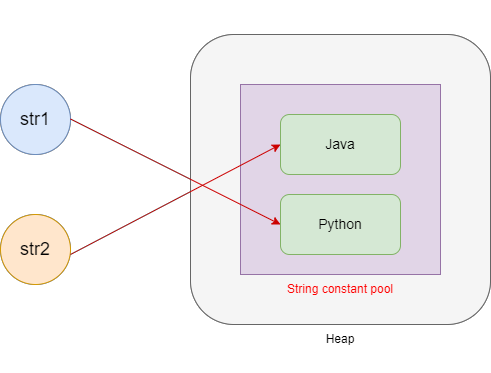Why Are Strings Immutable in Java? Exploring the Design Decisions
Why Are Strings Immutable in Java? Exploring the Design Decisions
Blog Article
Unalterable Strings: A Trick Element in Ensuring Data Consistency and Integrity
In the world of data administration, the importance of immutable strings can not be overstated. The idea of immutable strings goes beyond mere technicality; it is a linchpin in the facility web of data governance.
The Principle of Unalterable Strings
Unalterable strings, a fundamental principle in shows, describe strings that can not be customized as soon as they are produced. Basically, once a string worth is designated, any type of procedure that shows up to modify the string actually produces a brand-new string. This immutability makes certain information uniformity and reliability in applications, as it prevents unforeseen adjustments to the initial data.
Advantages in Data Uniformity

Information uniformity is critical in numerous aspects of software application advancement, including database management, multi-threaded environments, and dispersed systems (Why are strings immutable in Java?). Unalterable strings add substantially to accomplishing this consistency by protecting against information corruption as a result of concurrent accessibility. In situations where multiple procedures or threads communicate with the same information simultaneously, unalterable strings serve as a safeguard versus race conditions and synchronization concerns
Additionally, the immutability of strings simplifies debugging and screening processes. With unalterable strings, designers can rely on that as soon as a string is set, it will certainly remain the same, making it easier to map the resource of mistakes and making sure that test instances produce constant results. This reliability in data managing ultimately brings about much more steady and durable applications.

Applying Unalterable Strings
Making sure the immutability of strings requires a thoughtful method to their implementation in software program growth. One essential strategy is to make string classes in such a way that stops modifications as soon as a string things is created. By making strings unalterable, designers can enhance data uniformity and reliability in their applications.
To apply immutable strings efficiently, developers must favor developing brand-new string objects as opposed to modifying existing ones. This practice makes sure that once a string is designated a value, it can not be changed. Furthermore, any kind of operation that shows up to customize the string needs to produce a new string with the desired modifications rather than altering the original.
Furthermore, using unalterable strings can simplify concurrency monitoring in multi-threaded environments. Considering that unalterable strings can not be transformed after production, they can be securely shared among several threads without the threat of data corruption.
Function in Dependability Assurance
In software program growth, the utilization of unalterable strings plays a critical role in guaranteeing the dependability of information operations. Immutable strings, when produced, can not be modified, guaranteeing that the information they stand for stays regular throughout the application's implementation. This immutability home provides a level of assurance that the data being processed will certainly not be unintentionally altered, causing unforeseen results or errors in the system.
By incorporating immutable strings right into software application layout, programmers can boost the integrity of their applications by lessening the dangers connected with mutable data - Why are strings immutable in Java?. Immutable strings aid in preventing data corruption or unintended alterations, which can be especially vital when handling sensitive details or when data stability is extremely important
Additionally, making use of immutable strings simplifies concurrent handling, as numerous threads can securely accessibility and share string data without the threat of one string altering the content while another is reviewing it. This aspect adds dramatically to the overall dependability of the software application system, ensuring foreseeable and constant behavior in data here dealing with procedures.
Applications and System Assimilation
The seamless assimilation of unalterable strings into various applications and systems is essential for making sure durable data uniformity and dependability throughout varied technological settings - Why are strings immutable in Java?. Unalterable strings play a crucial function in enhancing the stability of data exchanges and interactions within complicated software ecological communities. By including unalterable strings into applications, designers can mitigate the risks connected with information tampering, unauthorized modifications, and unintended alterations, consequently fortifying the total safety posture of the system
In the context of system assimilation, unalterable image source strings function as a foundational aspect for developing safe communication channels and helping with seamless information transfers in between various parts. Their immutable nature makes certain that data transmitted in between systems stays verifiable and unmodified, minimizing the likelihood of disparities or mistakes that might compromise the integrity of the entire system. Moreover, unalterable strings can boost interoperability in between disparate systems by giving a standard layout for information depiction, allowing more efficient data processing and exchange protocols throughout interconnected systems. By adopting unalterable strings in applications and system integration procedures, companies can strengthen their information framework and maintain the dependability and uniformity of their information possessions.
Verdict
In verdict, immutable strings play a crucial duty in maintaining information uniformity and reliability in various applications and system combinations. By making sure that strings can not be altered as soon as created, the honesty of information is preserved, lowering the risk of inconsistencies and errors. Implementing unalterable strings can substantially improve the dependability of systems, inevitably causing more precise and reputable data processing.

Report this page